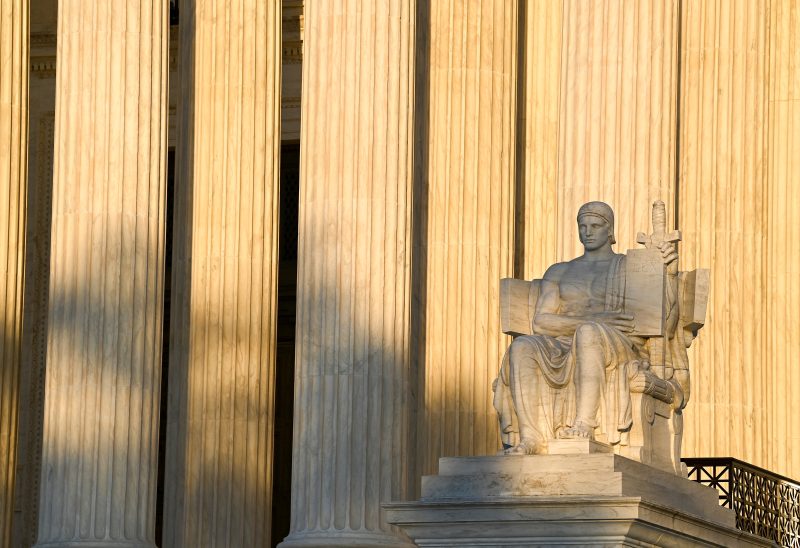The Supreme Court announced Monday that it will consider whether the First Amendment prohibits a public official from blocking constituents from personal social media accounts when those accounts are used to communicate with the public.
The court took two cases for the term that begins in October to decide a digital-age issue that has been active in lower courts. Two years ago, the justices dismissed a similar challenge to President Donald Trump’s efforts to block critics on Twitter, after he lost reelection and his Twitter account was suspended.
The court’s decision will have implications nationwide for how public officials use social media accounts, which according to many lower courts function as public bulletin boards for officials and inform constituents about the business of government.
One case accepted by the justices involves two members of a Southern California school board, Michelle O’Connor-Ratcliff and T.J. Zane. Both of them blocked Christopher and Kimberly Garnier, frequent critics and posters on their social media accounts.
The other involves James Freed, the city manager of Port Huron, Mich., who blocked city resident Kevin Lindke from his personal Facebook page.
The U.S. Court of Appeals for the 6th Circuit held that Freed did not violate Lindke’s rights by blocking access to Freed’s Facebook page, after Lindke was critical of the city’s pandemic restrictions. The court said Freed was acting in a personal capacity.
But the U.S. Court of Appeals for the 9th Circuit went the other way in the school board case, as most other lower courts have done. It said O’Connor-Ratcliff and Zone, elected trustees of the Poway Unified School District, had made their personal accounts a forum for communicating with parents and citizens.
“The protections of the First Amendment apply no less to the ‘vast democratic forums of the Internet’ than they do to the bulletin boards or town halls of the corporeal world,” Judge Marsha S. Berzon wrote for a unanimous 9th Circuit panel, quoting language from a previous Supreme Court case.
She said a look at the specifics of a public official’s social media account and how it is used is critical to deciding whether that official has created a public forum. But the fact that an account is not an official government account is not enough, Berzon wrote.
“Whatever those nuances, we have little doubt that social media will continue to play an essential role in hosting public debate and facilitating the free expression that lies at the heart of the First Amendment,” her ruling said. “When state actors enter that virtual world and invoke their government status to create a forum for such expression, the First Amendment enters with them.”
In their petition to the Supreme Court, the two school board trustees said they blocked the Garniers because the couple were spamming their accounts and posting repetitive replies. “For example, Christopher made the same comment on 42 different posts by O’Connor-Ratcliff and the same reply on 226 of her tweets,” the petition said.
The two officials claimed in their Supreme Court petition that they had a right to block the Garniers because the social media accounts at issue were not official.
“The Facebook pages were created by Petitioners in their personal capacities as campaign tools before they even took office, and Petitioners thus will keep those personal accounts (as well as a personal Twitter account created while in office) even after they leave office,” O’Connor-Ratcliff and Zane said. “The District has no control over the accounts, and the District has not used any personnel or funds to support the accounts’ operation.”
In the Trump case, the U.S. Court of Appeals for the 2nd Circuit in New York had ruled that because the president had used the forum to regularly communicate with the public, he could not block individual users who criticized him. But the Supreme Court dismissed the suit as moot.
The Knight First Amendment Institute at Columbia University, which pursued the case against Trump, said the court should use the new cases to settle the issue.
“With more and more public officials using social media to communicate with their constituents about official business, public officials’ social media accounts are playing the role that have historically been played by city council meetings, school board meetings, and other offline public forums,” Katie Fallow, senior counsel at the Knight institute, said in a statement.
“As many courts have held, it doesn’t matter whether it’s the president or a local city manager, government officials can’t block people from these forums simply because they don’t like what they’re saying.”



























